By bob k
If for no other reason, Courtenay Baylor should be of interest to modern AA members for being the first recovered alcoholic to work as a professionally paid addictions counselor. He set the precedent for the tens of thousands in the modern world who have gotten sober and then entered the field of guiding others to do the same. There are additional reasons to know about Baylor, most particularly for the secularist.
As his alcoholism progressed, Courtenay Baylor (1870-1949) found that he had become an insurance agent who spent a good deal more time drinking than discussing indemnity plans. In 1911, he came to Boston to consult with Elwood Worcester about his problematic drinking. Five years earlier, the Emmanuel Church had entered into co-operation with the local medical community in setting up a tuberculosis clinic in the building’s basement.
Among those seeking treatment for “TB,” there were many alcoholics. Others arrived displaying symptoms of a variety of nervous disorders falling under the general category of “neurasthenia,” a term popular at the time. Reverend Worcester and his associate rector, Samuel McComb had doctorates in psychology. They began helping people with their emotional disorders and assisted a number of alcoholics in achieving sobriety.
Courtenay Baylor was among those who were able to achieve sobriety. Instead of returning to what had been a successful business career overall, he felt that he had acquired a new life and a new attitude. His emotional rearrangement prompted him to take a position as a “friendly visitor” on Worcester’s staff. Elsewhere, he is described as being hired as a supervisor of the Social Services department.
Perhaps he intuited that such a path of service might insure his long-term sobriety.
Baylor stayed with Worcester out of a desire to help others as he had been helped. Worcester apparently never regretted accepting his offer. In his autobiography, he praises Baylor for “his originality, his psychological insight, and his extraordinary ingenuity as a teacher.” He adds: “His strength lies, partly, in his ability to impart his wholesome philosophy of life so unobtrusively as to arouse no opposition. In a short time, the pupils begin to announce his own principles as their own convictions.” (The Road to Fellowship, Richard Dubiel, p. 36)
Although neither a clergyman nor a medically trained professional, Baylor did bring the unique perspective of an intimate, “insider’s knowledge” of the malady. The former insurance agent stood before his “patients” as proof positive of his own solution – a living example that an alcoholic could be rehabilitated.
This was not a mere theory.
Real results were being attained, and Baylor’s developing therapeutic ideas and practices were given a broader audience with the publication, in 1919, of Remaking a Man. Physicians and some of those who had been “cured,” picked up on his techniques. Increased numbers were reached as the lay therapy movement grew. The progressive Christian ministers had incorporated religious practices like prayer along with what was more properly called “psychology.” Baylor focused on secular therapies.
His claimed “cure rate” of 65 percent gains credibility from the fact that his critics assailed not his numbers, but the possibility that the remarkable degree of his successes was due more to Baylor’s tremendous personal charisma than his methodology. However, similar numbers were achieved by his followers. One reason for the high percentages stemmed from the procedure of strictly “pre-qualifying” potential clients for motivation. Little time was wasted on the “wishy-washy.” “First and most importantly was a real desire to be cured.” (The Psychology of Alcoholism, G.B. Cutten, p. 283)
Alcoholics Anonymous in the 1930s operated much the same way.
Alcoholic Neurosis
Baylor thought that most alcoholics suffered from an alcoholic neurosis. He began with the assumption that the condition to be treated was the same whether it was the cause or the outcome of drinking.
Although a detailed analysis of Baylor’s techniques lies beyond the scope of this short essay, it’s worth taking a look at some comments from William L. White.
(Baylor) emphasized the necessity of working primarily, not upon the surface difficulty, but upon the condition behind it and upon the cause of the underlying condition… He taught techniques of relaxation that today would go by such names as thought stopping, progressive relaxation, self-hypnosis, autogenic training, and guided visualization.
Baylor’s therapeutic style involved teaching, encouragement, and a high degree of mutual self-disclosure. Because of Baylor’s emphasis on self-disclosure, his treatment contract required a mutual commitment to confidentiality. Baylor tried to cultivate in the client the development of a new focus in life. To Baylor, sobriety required a purpose, a philosophy, and a plan. He spoke not of recovery, but of ‘reconstruction’.
Slaying the Dragon, First Edition, William L. White, p. 101
Famous Clients
Courtenay Baylor had two clients who were notable from the perspective of Alcoholics Anonymous. In 1922 he treated Richard Peabody (1892-1936), who went on to become the most famous of the lay therapists. The one-time American aristocrat had suffered depression, institutionalization, divorce, and disinheritance – all by the age of 30. In 1931 (sometimes reported as 1930), following several years of private practice, Peabody published The Common Sense of Drinking, a book that influenced Bill Wilson as he wrote AA’s Bigga Booka later in the decade. Phrases from Peabody’s book appear in Alcoholics Anonymous almost word-for-word. “Halfway measures are of no avail,” and “Once a drunkard, always a drunkard” come to mind but there are many others.
Baylor’s other interesting client is described on page 26 of AA’s book as a “certain American businessman.” Rowland Hazard (1881-1945) was another black sheep from a wealthy and prominent family. His Rhode Island ancestors date back to the early colonization of America.
Hazard’s story, as crafted by Bill Wilson, is used to demonstrate that the money-is-no-object quest for sobriety proved useless. We are told in conference-approved literature that Hazard went to Switzerland to be treated by the great psychoanalyst, Carl Jung. We are informed that the therapy was of a year’s duration and that it took place in 1931. Relatively recent research by the Rhode Island Historical Society demonstrates conclusively that both claims are false. The treatment period was no more than eight or nine weeks, and most likely occurred in 1926.
This seems to be a classic example of Bill Wilson’s predilection for myth-making – a full year of expensive, expert human power treatment and no result. The official AA version of the tale has Jung advising Rowland to seek a spiritual experience, and Rowland finding that solution with the Oxford Group. The truth compounds a simple tale.
What happened during the seven intervening years from 1927 to 1934?
For one thing, there was a lot of drinking interspersed with institutionalization and periods of sobriety of varying lengths. Despite having no particular objection to a religious solution, Hazard did not pursue that option with “the desperation of drowning men.” Perhaps Jung’s recommendation never happened. In any case, the Rhode Islander didn’t connect with Buchman’s group until 1933.
Did the religionists save Rowland Hazard? Perhaps, but he was being treated by Courtenay Baylor at the same time.
IF Hazard told Bill Wilson in some detail about Jung’s alleged recommendation that he seek a spiritual experience, it seems unlikely that he would misreport the timing by five years. Did Rowland fail to inform Bill that he continued to seek other therapeutic solutions? Did he forget to mention that he was being treated by Baylor at the time he got sober?
Of course, we must remember Bill Wilson’s mission. When pitching the inefficacy of non-mystical approaches, it’s probably unwise to cite examples of recovery through human power means.
Courtenay Baylor helped many drunks to reconstruct themselves. He seems to have helped AA’s famous “American businessman.” He helped the atheist, Richard Peabody, with methods that required no kneeling. The lay therapy movement had a nice run, well into the 1950s.
The pitch of the AA fundamentalist that “probably no human power could have relieved our alcoholism” is contradicted at many junctures.
Alcoholics Anonymous was not the only therapy for alcoholism that flourished in its time. Other approaches to treating alcoholism, although they derived from sources very different from the influences that impinged upon AA, used similar methods and even incorporated some of the same ideas that a forgetfulness of history leads later thinkers to associate with Alcoholics Anonymous. In particular, the approach of Richard R. Peabody…not only preceded in time Wilson’s own sobriety but was well into the fifties accepted and endorsed by many doctors and clergy much more enthusiastically than was Alcoholics Anonymous.
Not-God: A History of Alcoholics Anonymous, Ernest Kurtz, p. 158
AA member and sobriety activist Marty Mann also described the lay therapy movement as having “considerable success.”
AA history and pre-AA history frequently contradict the pronouncements of AA fundamentalists, and that’s good fun for secularists.
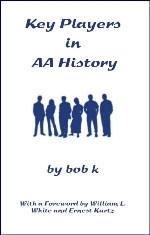 In Key Players in AA History (2015), bob k covered the lay therapy movement in a single chapter. It deserves much more.
In Key Players in AA History (2015), bob k covered the lay therapy movement in a single chapter. It deserves much more.
In the upcoming The Road To AA: Pilgrims To Prohibition, six chapters are devoted to this interesting AA predecessor. Also in the offing is a work of biographical fiction The Secret Diaries of Bill W.
The post Courtenay Baylor first appeared on AA Agnostica.
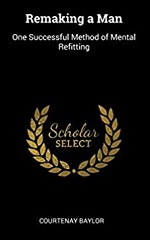

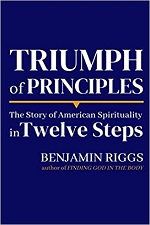

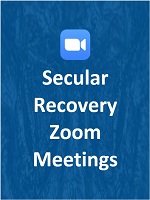

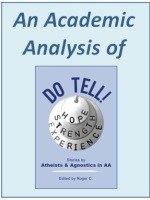

![Do Tell! [Front Cover]](https://nrdblogs.nationalrehabdirectory.net/wp-content/uploads/2020/09/Do-Tell-Full-Blue-Front-Cover-200-FRAMED.jpg) This is a chapter from the book: Do Tell! Stories by Atheists and Agnostics in AA.
This is a chapter from the book: Do Tell! Stories by Atheists and Agnostics in AA. 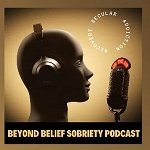
 On February 22nd of this year (2021), John retired the
On February 22nd of this year (2021), John retired the